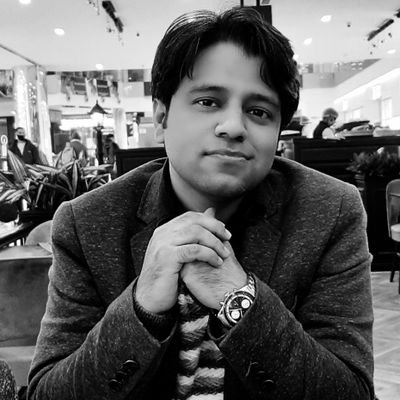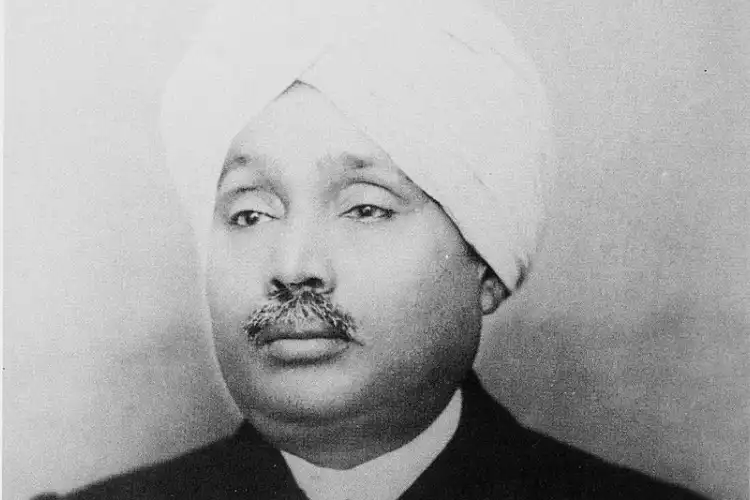 Saquib Salim
Saquib Salim
The colonial historians and their brown successors often lead us to believe that Lala Lajpat Rai was a Hindu communal leader and should be blamed for fanning the communal divide. They even call him as one of the earliest proponents of the two-nation theory. The reality is different.
Was Lala Lajpat Rai a communal anti-Muslim leader? The answer should be sought out from his Muslim contemporaries.
A Slice Of History
Ubaidullah Sindhi, one of the pioneer Muslim revolutionaries of the Indian Freedom Struggle who formed a Provisional Government in 1915 and later collaborated with Subhas Chandra Bose, remembered Lala Lajpat Rai as a committed nationalist. In the 1940s, Sindhi recalled how Lala once reached Turkey, where he was living in exile, on receiving his letter in which he wondered if they could discuss revolutionary plans. Lala also helped him in taking care of her mother living in India.
On 17 November 1928, Lala Lajpat Rai received martyrdom after being hit brutally by police batons on 30 October, while protesting against the Simon Commission in Lahore. The reaction of Muslims was evidence of the respect he commanded as a leader among them. Dr. Mohamed Alam, a tall Muslim leader of Lahore, told the press, “The funeral procession of Lala Lajpat Rai testified to the love with which the people of Punjab regarded the departed leader….. I am glad that Muslims took a prominent part in demonstrating their grief, and I know that the Muslim community shared the sense of loss that the country has suffered”
In his newspaper, Hamdard, Maulana Mohammad Ali Jauhar wrote that “the country will deeply mourn the death of Lalaji. The paper laments that the Punjab leader should have passed away at a time when the nation wanted its leadership.”
Maulana Zafar Ali Khan, a freedom fighter and editor of Zamindar, that the lathi blows, which led to Lala’s death, were the last nails in the coffin of the British Raj.
Dr. M. A. Ansari, another stalwart of the Indian Freedom struggle, said, “Lala Lajpat Rai’s death is a great national calamity, his presence at this critical juncture was most needed.” He further said that “the death of Lala Lajpat Rai meant to him the loss of a friend so lovable, intimate and dear…… Many thought that Lala Lajpat Rai was a bigoted Hindu. Far from it. He was a devout nationalist.” Maulana Yakub Hasan also seconded these thoughts at the same meeting in Chennai.
In Lucknow, Raja of Mahmudabad presided over a large public meeting and said, “Lala Lajpat Rai was the shining sun in the Indian political firmament. He had given every minute of his life to the country's cause. For the good of his motherland, he was prepared to go any limit.”
In Delhi, it was Sheikh Muhammad Taqqi who presided over a huge public meeting held at Victoria guarded to pay tribute to Lala. Asaf Ali, who later advocated for Bhagat Singh in the court when the latter was tried for avenging the killing of Lala, said, “the only way in which you can give proof of your love for Lalji and commemorate him, is by following in his footsteps and working for achieving the ideal which Lalaji had died in trying to achieve, namely the liberty of the motherland.”
The appeal to observe Lala Lajpat Rai also came from a Muslim leader, Maulana Abul Kalam Azad. The new report read, “an appeal to the nation under the signature of Dr. Ansari and Maulana Abul Kalam Azad has been issued for observing November 29 as Lala Lajpat Rai Day. They urge that on that day meetings should be held all over the country to mourn the loss sustained in the death of the bravest lighter in the cause of the country’s liberation.”
We should understand that Bhagat Singh and his comrades would not have risked their lives in avenging Lala Lajpat Rai’s death if Lala had an iota of religious bigotry in him.
In the words of G. K Nariman, a contemporary scholar of religions, literature, and culture, “It is an error, if it exists, that Lala Lajpat Rai was anti-Musalman. What he was against, is the periodic insanity which possesses some of us and which we euphemistically style religious fanaticism.”

 Saquib Salim
Saquib Salim